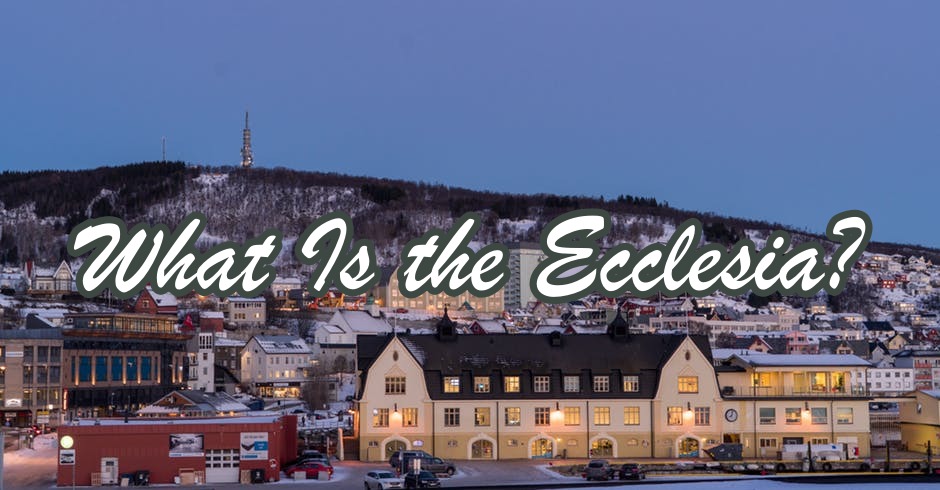What Is the Ecclesia?

Ephesians 6:14-18 (KJV)
Stand therefore, having your loins girt about with truth, and having on the breastplate of righteousness;
And your feet shod with the preparation of the gospel of peace;
Above all, taking the shield of faith, wherewith ye shall be able to quench all the fiery darts of the wicked.
And take the helmet of salvation, and the sword of the Spirit, which is the word of God:
Praying always with all prayer and supplication in the Spirit, and watching thereunto with all perseverance and supplication for all saints;
There are only two times the word church is categorically not used to speak of a local New Testament assembly of baptized believers. There are a few occurrences that some would deny that it speaks of such a church, but only two are clearly and categorically not speaking of a local New Testament church
Once it is Israel, the church in the wilderness
Acts 7:38 (KJV)
This is he, that was in the church in the wilderness with the angel which spake to him in the mount Sina, and with our fathers: who received the lively oracles to give unto us:
Pagan temples…
Acts 19:37 (KJV)
For ye have brought hither these men, which are neither robbers of churches, nor yet blasphemers of your goddess.
There is another verse that uses the Greek word ecclesia, from which the word church is derived, and it also clearly speaks of something other than the local New Testament church -
Acts 19:39 (KJV)
But if ye enquire any thing concerning other matters, it shall be determined in a lawful assembly.
The Roman world in which Paul and his audience were surrounded (especially in a city like Ephesus) was based on Ancient Greek principles of democracy.
Greece defeated the Medo-Persian Empire and, though Greece was eventually conquered by Rome, one could say that Grecian thought had already conquered the known world.
In the Ancient Greek world, the ecclesia, the “assembly,” was the ruling body of any city.
We would think of it like our city council.
Only in the Greek world – especially the Ancient Greek world, every adult male was a member of the ruling assembly.
Here’s how as I understand it, that came to be.
In Ancient Greece, the threat of an advancing army was ever present. For an Ancient Greek community the question of an attack was not if but when.
Most often that attack would be by another Greek community. Land was how they survived and prospered and the way to get land was to take it.
In order to protect the community – called a Polis, every Greek male was expected to stand when the time came to stand in order to defend your Polis
They were also expected to march into combat whenever the Polis needed to expand its land holdings.
Every Greek male was trained from a youth in the tactics of war, and when he came of age He was expected to take his place on the battle line.
He was the original "Minute man," ready to leave his fields and do battle when called for.
In exchange, this male was given the privilege of voice.
In other words, he had a vote in his community's civil matters.
It wasn’t technically a pure democracy because women and children were not allowed to vote, and there were always slaves with in the Polis, captives from previous battles – they didn’t get a vote either.
But the principle was, if you fought for the Polis, the city, you got a voice in the assembly of the city.
That assembly was called an ecclesia.
Of course, over the course of time, the ecclesia evolved.
• In some cases it became larger than one city
• Under Rome it became much more republic than democratic
• Eventually the term was dropped from secular use and became a predominantly Christian term